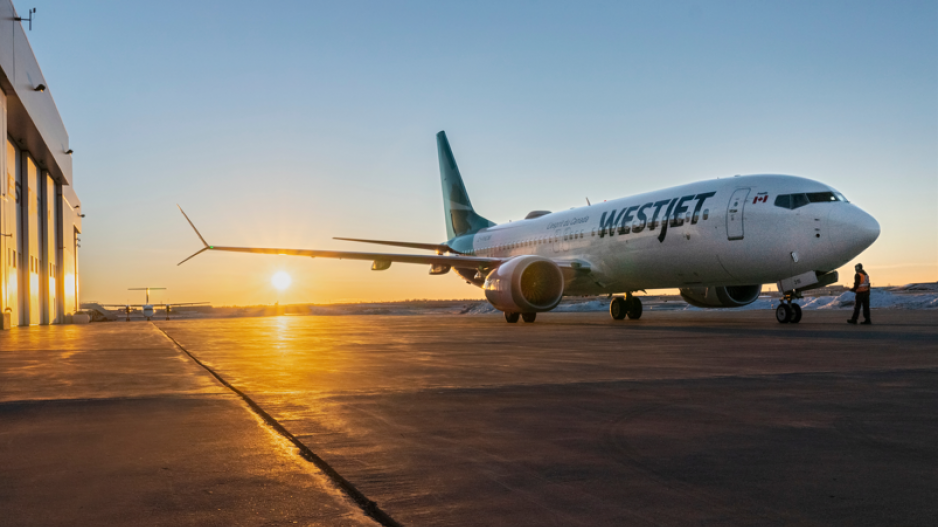WestJet has cancelled more than 100 flights on Thursday as talks with the pilots’ union have hit a “critical impasse,” the company said, jeopardizing travel plans for thousands of passengers ahead of the May long weekend.
Some 1,800 pilots at the carrier and its Swoop subsidiary are poised to walk off the job as of 3 a.m. MT after the Air Line Pilots Association served a strike notice Monday.
WestJet issued a statement early Thursday saying negotiations were stuck “in a stalemate.”
"We remain at a critical impasse with the union and have been left with no choice but to begin taking the painful steps of preparing for the reality of a work stoppage," CEO Alexis von Hoensbroech said in a release.
The Calgary-based company has begun to park the bulk of its fleet using a "measured, phased and safe approach," the statement read.
As of early Thursday afternoon, the carrier had cancelled 111 flights or 31 per cent of those scheduled for the day, according to tracking service FlightAware. The vast majority are out of Calgary or Toronto's Pearson airport.
So far, 29 flights or eight per cent of those scheduled on Friday have been cancelled. Passengers are now unable to make online bookings for WestJet flights on major routes such as Calgary-Vancouver and Toronto-Calgary until Tuesday.
The airline said it will continue to operate its regional services including its fleet of 47 planes at WestJet Encore and WestJet Link, which connects its Calgary hub with smaller cities in British Columbia and Alberta. Regional pilots are not involved in the current bargaining.
"Surprisingly, smaller markets where WestJet operates will be fine," said Duncan Dee, former chief operating officer at Air Canada. "The key routes that we're looking at where WestJet customers will have very significant difficulty will be routes like Vancouver-Calgary."
The fallout could be "extremely damaging to the WestJet brand," as well as to pilots' careers, Dee said.
In 1998, a 13-day pilot strike at Air Canada grounded 650 flights and 60,000 passengers daily, costing the company $133 million.
WestJet and Swoop operate 130 narrow-body 737s and seven wide-body 787 Dreamliners — most of which will need to be parked in the event of a strike — according to Transport Canada’s civil aircraft registry.
"It's going to be an all-hands-on-deck situation. The executive team is split into two: one will be focused on the negotiations and managing that from a strategic perspective; the other team will be focused on winding down the parts of the airline ... and maintaining the parts of the airline that need to be maintained," Dee said.
With more than 4,000 flights originally scheduled over the next seven days, the airline carries 28 per cent of Canada's domestic market, while Air Canada runs 47 per cent, according to Cirium.
The federal labour minister and the government's head mediator as well as WestJet's CEO and the pilots' union leaders have descended on a hotel near the Toronto airport to work toward a deal.
Bernard Lewall, who heads the union's WestJet contingent, says the workers' issues revolve around pay, job security and scheduling, with pilots earning roughly half of what some of their U.S. counterparts make. The company said Thursday the union's wage expectations were "unreasonable" and would "permanently damage the financial viability of the group's future."
The airline has advised travellers to check the status of their flight before leaving for the airport, and to visit WestJet's guest updates webpage or Swoop's website for more information on flight status and travel changes.
This report by The Canadian Press was first published May 18, 2023.
Chris Reynolds, The Canadian Press
Note to readers: This is a corrected story. A previous version had the wrong time zone for the strike start time.




